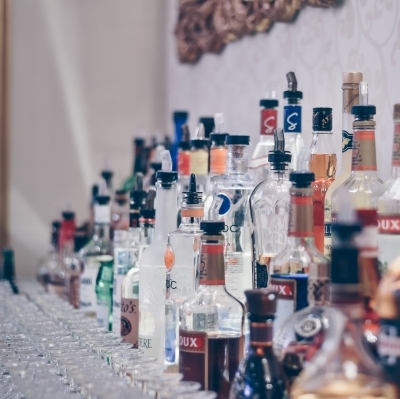Oregon Case Law Update: Patron Not Prohibited from Filing Third Party Complaint Against Alcohol Provider
Oregon Case Law Update: Patron Not Prohibited from Filing Third Party Complaint Against Alcohol Provider
From the Desk of Jeff Eberhard: A few months ago, the Oregon Court of Appeals held that ORS 471.565(1), which prevents a patron who voluntarily consumed alcohol from bringing suit against the alcohol provider, to be unconstitutional in the context of a social host. [See our prior Case Update on Schutz here]. In this case, the Oregon Court of Appeals ruled that ORS 471.565(1) does not prohibit an intoxicated patron from filing a third-party complaint against the alcohol provider in a lawsuit brought by the injured plaintiff against the patron.
Claims Pointer: In this case arising out of injuries suffered by a plaintiff when an intoxicated patron crashed in the plaintiff’s home, the Oregon Court of Appeals was tasked with deciding whether ORS 471.565(1) prevents the intoxicated patron from bringing the alcohol provider into the lawsuit by a third-party complaint. The court looked to the plain text of the statute and the legislative history underlying the statute, and determined that the legislature would not have intended for ORS 471.565(1) to prevent a patron from impleading the provider. Because the court was able to resolve the case on a “subconstitutional level,” it did not consider whether ORS 471.565(1) was constitutional in the context of a third-party claim.
Wilda v. Roe, 290 Or App 599 (2018)
Steven Roe (“Roe”) went out and visited a few taverns, where he consumed alcohol until he became intoxicated. While driving, Roe fell asleep and crashed into the house where Charles Wilda (“Plaintiff”) was asleep in his bed. Plaintiff filed suit against Roe, who admitted to the negligence and filed a third-party complaint against B & B Wachter, Inc., dba Round Butte Inn (“Round Butte”) and L & K Semm, Inc., dba Desert Inn Bar & Grill, Inc. (“Desert Inn”) (collectively “the taverns”) for serving him while he was intoxicated. Roe’s third-party complaint alleged that if Plaintiff were to recover from him, the taverns should contribute in proportion to their share of fault. The taverns filed a motion to dismiss, which the trial court granted. Roe appealed the trial court’s decision.
On appeal, Roe’s position was that ORS 471.565(1) was narrow, and only prohibits the intoxicated patron from bringing a claim against the establishment for the patron’s injuries, but does not prohibit “the patron from impleading liquor establishments to help pay for personal injuries to a person injured by the intoxicated patron.” The taverns in turn argued that the statute should be read broadly to prohibit the intoxicated patron from bringing any cause of action against the establishment. (emphasis added).
The Oregon Court of Appeals first looked to the text of ORS 471.565(1), which provided:
A patron or guest who voluntarily consumes alcoholic beverages served by a person licensed by the Oregon Liquor Control Commission . . . does not have a cause of action, based on statute or common law, against the person serving the alcoholic beverages, even though the alcoholic beverages are served to the patron or guest while the patron or guest is visibly intoxicated. The provisions of this subsection apply only to claims for relief based on injury, death or damages caused by intoxication and do not apply to claims for relief based on injury, death or damages caused by negligent or intentional acts other than the service of alcoholic beverages to a visibly intoxicated patron or guest.
The court agreed that the first sentence, in isolation, support’s the taverns’ position as it states that the patron “does not have a cause of action,” against the establishment. The court however noted that it would not look to just one sentence in isolation, and instead, the proper method would require looking at the entire statute as a whole. The second sentence states, “[t]he provision of this subsection apply only to claims for relief based on injury, death or damages caused by intoxication . . .” Thus, the second sentence signifies that the prior sentences is limited to claims “based on injury, death, or damages.” The court admitted that it was still unclear as to whether a cause of action “based on injury, death, or damages” included a third-party complaint.
The court looked to the legislative history behind ORS 471.565 for further clarification. The testimony underlying its enactment was focused on a desire to prohibit claims brought by patrons who became intoxicated by their own choice, hurt themselves, and then sought damages from the alcohol provider for their own injuries. (emphasis added). Accordingly, it was clear to the court that ORS 471.565(1) was “deliberately focused on prohibiting the claim of the injured patron for the patron’s own injuries based on service of alcohol.”
The court also looked to the “well-established comparative fault scheme” that existed at the time the statute was enacted, and found it to be significant. Under the statutory scheme, a patron’s third-party complaint against the provider “for purposes of comparison of fault” does not function as a claim that will lead to a judgment in favor of the patron and against the provider. Instead, when the patron files an impleader, there will be one verdict form, allowing the jury to apportion fault amount the patron and providers, all as defendants.
According to the court, the legislative history did not suggest that the legislature would have understood a third-party complaint, “which is defensive in nature,” to be considered a “cause of action,” within the meaning of ORS 471.565(1). Coupled with the comparative fault scheme that existed when ORS 471.565(1) was enacted, the court held that nothing in the legislative history or in the context of the statute suggested that the legislature intended to prohibit a patron from impleading the provider into the plaintiff’s action against the patron. Accordingly, the court held that ORS 471.565(1) did not prevent the patron from impleading the taverns, and reversed the trial court’s decision.
View full opinion at: http://cdm17027.contentdm.oclc.org/cdm/singleitem/collection/p17027coll5/id/14783/rec/2
To email Jeff Eberhard, please click here.
To view the latest Washington Case Law Update: Washington Court of Appeals Allows Bad Faith and CPA Claim Against Adjuster, please click here.
This article is to inform our clients and others about legal matters of current interest. It is not intended as legal advice. Readers should not act upon the
information contained in this post without seeking professional counsel.

















